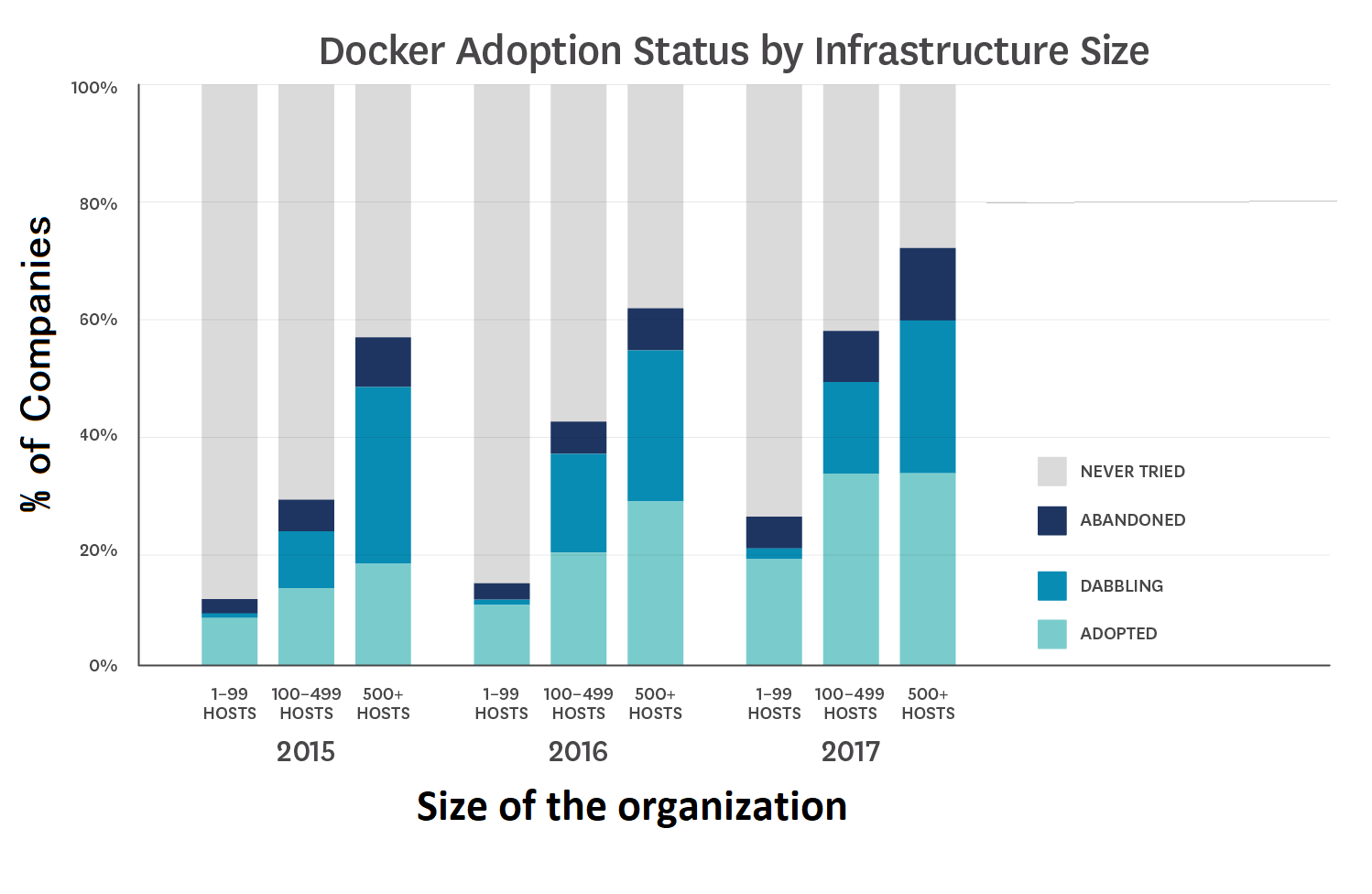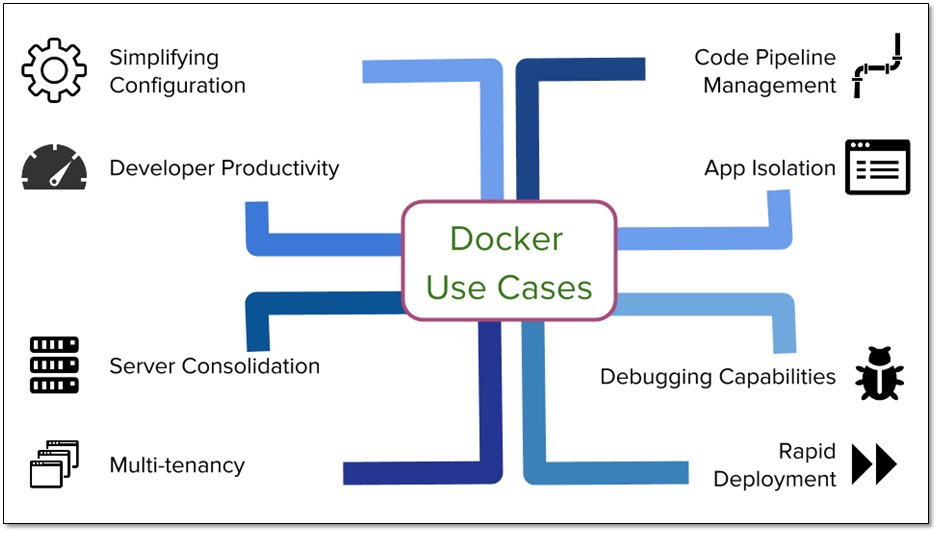Running applications in containers rather than virtual machines is picking up momentum in the IT world these days. The innovation is thought to be one of the quickest developing in the historical backdrop of the software industry. At its heart lies Docker, a platform that enables clients to effortlessly pack, convey and manage applications inside containers. As such, It is an open-source project that automates the deployment of application inside software containers. In this article, we will be emphasizing the major reasons that can boost the Productivity Software Installation by using Docker.
Docker truly makes it less demanding to make, convey, and run applications by utilizing containers. What’s more, containers enable developers to pack up an application with the majority of the parts it needs, for example, libraries and different other dependencies, etc. and ship everything out as one package. Thus, by doing so the developer guarantees that the application continues running on some other Linux machine regardless of any tweaked settings that machine may have utilized for composing and testing the code. Well! Another question that arises in mind is what are the top technologies running on Docker? The graph below should help answer your question.

Big scale Companies are Still Leading Docker Adoption
In any case, on account of Docker, we’ve seen bigger organizations driving the path since its release. The more hosts a company uses, the higher the chances of it experimenting with Docker. About 60% associations running at least 500 hosts are named Docker amateurs or adopters.
In any case, on account of Docker, we’ve seen bigger organizations driving the path since its release. The more hosts a company uses, the higher the chances of it experimenting with Docker. About 60% associations running at least 500 hosts are named Docker amateurs or adopters.

Containerization is one of the quickest developing innovations in the software world. One of the leading organizations that offer a software container platform is Docker. The utilization of Docker is imperative for us to circulate compute power, but it’s additionally important for you as a cloud customer. As of now, the cloud market is costly and rather non-transparent. We believe it’s important that the cloud market turns out to be more transparent and adaptable, which can be acknowledged by utilizing containers (standardized unit for software) to run your calculations. Technology picked a huge popularity among developers when Docker introduced Linux containers. Today Docker has millions of container downloads, a huge number of community supporters, and countless projects who are utilizing it. Well, what clarifies this extraordinary popularity?
Read more:- 5 Code And Framework Trends To Watch Out For In 2018
There are numerous articles out there attempting to answer that question, that cover the Docker highlights and advantages, generally for developers. When it comes to common clients and even system administrators, despite knowing everything we have a few questions. In this article, we will be discussing principle points of interest of utilizing Docker for individuals and the reasons in order to use Docker for its productivity software installation:-

Following are the Top Reasons For Using Docker To Boost Productivity Software Installation
1) Faster Software Updates
Data security is one of the fundamental reasons why individuals incline towards open source and server solutions for cloud-based architecture. Its updating procedure itself takes additional time than the software installation.
With Docker, the updating procedure turns out to be substantially easy. We can store information on the host machine (mount the data volumes by determining the – v alternative in the Docker run command) and back it up with any software accessible for such purposes. Then, all we require is to remove the present container, and the current image, and run the new picture with a similar guidance path.
2) Using Resources Efficiently
To guarantee the best project management tools work, our machine must meet all the system necessities determined by developers. In any case, the settings and condition of our machine could vary from those of the machine utilized by developers for composing and testing the code. Despite the time spent, we would not have the capacity to install anything else on this machine. Or on the other hand, you may find that you have to hire a system administrator or a developer to recreate the vital condition.
Docker enables us to limit these expenses by giving an approach to run an application securely isolated in a container enabling us to run numerous containers all on one machine.
3) Keep The Machine Moving Right
Picking the right project management tool(s) might take some time. Docker enables us to test the toolset on our local machine and assess its abilities without obstructing the system. We won’t have to scan for the conditions and uninstall them one by one, you can simply uninstall them with one single command.
Read more:- Does Your Business Need Hardware Inventory Software?
4) Avoid All Kind Of Dependency Errors
As extra segments are required, more issues may occur when introducing and configuring them. Docker diminishes the number of conditions and consequently the errors that may happen particularly for ordinary users.
5) Time Transparency
Project management tools are planned to bring a venture through all of its stages, and help clients rapidly and productively achieve their goals. Thus, the installation ought to be fast and simple. Yet, some of the time, going through all these installation steps may take a couple of hours regardless of whether we utilize the packages instead of aggregating the source code. The fundamental explanation behind this is that these tools require some extra components to be introduced on the machine whereas, managing the different versions can be tedious.
When we utilize the Docker image, the main reliance to be installed is Docker itself. All we need is to execute one single command to send the selected project management tool with all the vital conditions.
Utilizing Docker empowers us to influence the cloud market and its adaptability. It’s an extraordinary innovation for cloud computing, however, it’s generally new and along these lines constantly developing. For some software applications, for example, Windows software or applications with complex licensing structures, it can, in any case, be difficult to make a Docker image. When your software application is suitable, Docker has numerous advantages G to giving you enough motivations to begin investigating the innovation!

